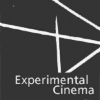[quote]As he writes in his short book, Devotional Cinema (2003), Nathaniel Dorsky aspires to discover in film a way of “approaching and manifesting the ineffable.” In recent years that has meant fixing his camera on the world around him, usually his adopted home town of San Francisco, and finding in its mundane details images of extraordinary wonder. His work counters what Peter Hutton, another practitioner of devotional cinema, calls the “emotional velocity and visual velocity” of our times. Dorsky’s films manage to shift our perception, making us more alive to the strange beauty of the physical world we inhabit.
Dorsky’s latest films, Winter and Sarabande, premiered last month at the Toronto International Film Festival, where they were screened on a program with Jean-Marie Straub’s Le Genou d’Artemide. Dorsky took the stage for a brief Q&A following the screening of his films—but before the Straub—and, frankly, it didn’t go particularly well. The first question was a back-handed compliment that set an unfortunate tone for the session. He did, however, offer a few insights into his process. Rather than beginning with a particular subject in mind, he instead shoots from “a certain aspect of [his] psyche” and trusts that a through-line will emerge in the editing. Titles come much later, “when desperate.” And he described himself as a “corny” guy who has seen and internalized more than10,000 films and wants, most of all, to discover and share something new.
Sarabande and Winter will screen Saturday as part of the New York Film Festival’s Views from the Avant-Garde program, and Dorsky will also be in attendance for a week-long retrospective of his work at Anthology Film Archives.
I spoke with Dorsky immediately after the screening in Toronto. As we were walking across the street to a coffee shop, I asked if he knew Pedro Costa’s films.
...[/quote]
[url=http://notebook.theauteurs.com/?p=302]Manifesting the Ineffable: A Conversation with Nathaniel Dorsky[/url]

[quote]As he writes in his short book, Devotional Cinema (2003), Nathaniel Dorsky aspires to discover in film a way of “approaching and manifesting the ineffable.” In recent years that has meant fixing his camera on the world around him, usually his adopted home town of San Francisco, and finding in its mundane details images of extraordinary wonder. His work counters what Peter Hutton, another practitioner of devotional cinema, calls the “emotional velocity and visual velocity” of our times. Dorsky’s films manage to shift our perception, making us more alive to the strange beauty of the physical world we inhabit.
Dorsky’s latest films, Winter and Sarabande, premiered last month at the Toronto International Film Festival, where they were screened on a program with Jean-Marie Straub’s Le Genou d’Artemide. Dorsky took the stage for a brief Q&A following the screening of his films—but before the Straub—and, frankly, it didn’t go particularly well. The first question was a back-handed compliment that set an unfortunate tone for the session. He did, however, offer a few insights into his process. Rather than beginning with a particular subject in mind, he instead shoots from “a certain aspect of [his] psyche” and trusts that a through-line will emerge in the editing. Titles come much later, “when desperate.” And he described himself as a “corny” guy who has seen and internalized more than10,000 films and wants, most of all, to discover and share something new.
Sarabande and Winter will screen Saturday as part of the New York Film Festival’s Views from the Avant-Garde program, and Dorsky will also be in attendance for a week-long retrospective of his work at Anthology Film Archives.
I spoke with Dorsky immediately after the screening in Toronto. As we were walking across the street to a coffee shop, I asked if he knew Pedro Costa’s films.
...[/quote]
[url=http://notebook.theauteurs.com/?p=302]Manifesting the Ineffable: A Conversation with Nathaniel Dorsky[/url]
Add new comment